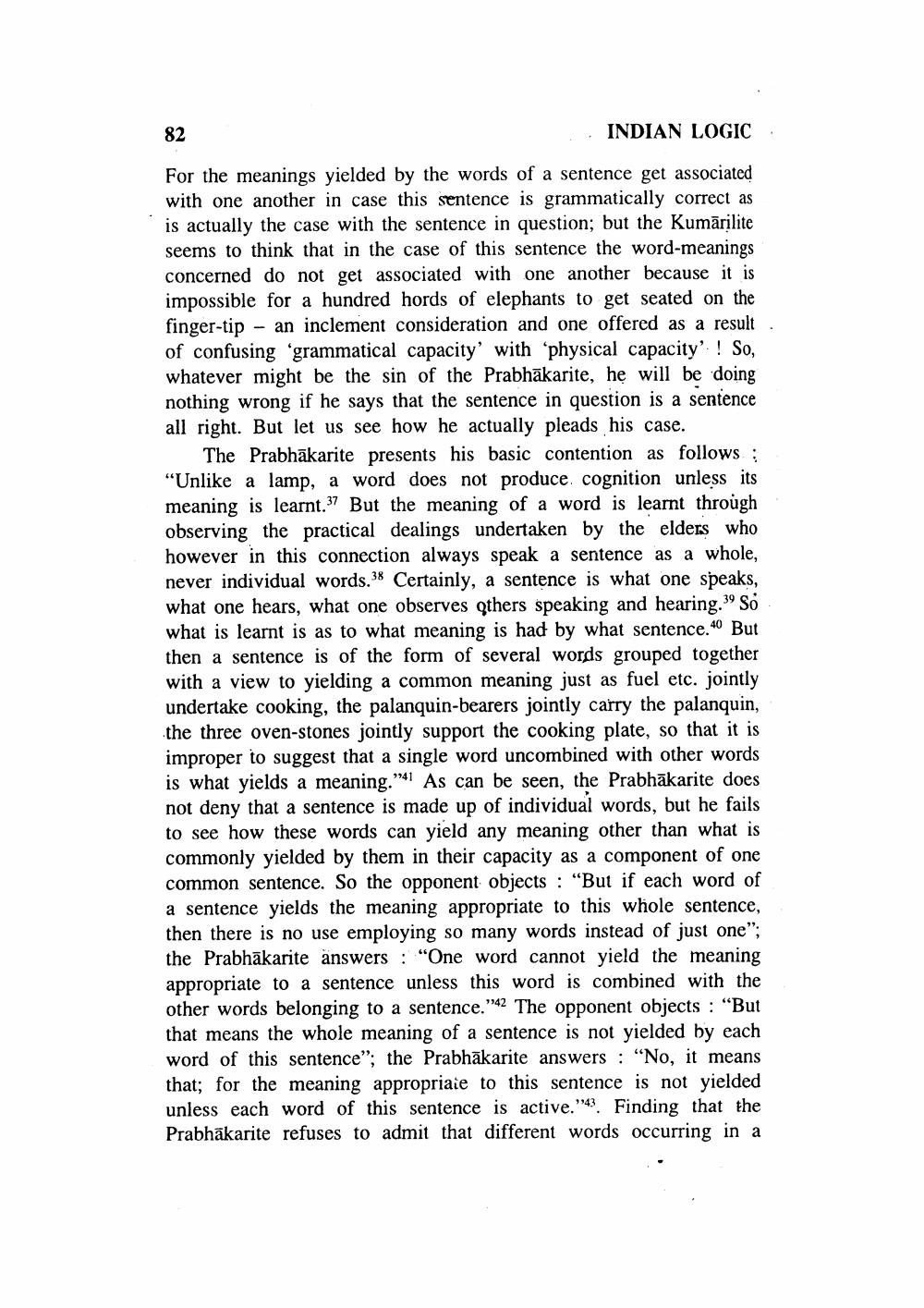________________
82
· INDIAN LOGIC
For the meanings yielded by the words of a sentence get associated with one another in case this sentence is grammatically correct as is actually the case with the sentence in question; but the Kumārilite seems to think that in the case of this sentence the word-meanings concerned do not get associated with one another because it is impossible for a hundred hords of elephants to get seated on the finger-tip - an inclement consideration and one offered as a result of confusing 'grammatical capacity' with 'physical capacity'. ! So, whatever might be the sin of the Prabhākarite, he will be doing nothing wrong if he says that the sentence in question is a sentence all right. But let us see how he actually pleads his case.
The Prabhākarite presents his basic contention as follows: “Unlike a lamp, a word does not produce. cognition unless its meaning is learnt.37 But the meaning of a word is learnt through observing the practical dealings undertaken by the elders who however in this connection always speak a sentence as a whole, never individual words.38 Certainly, a sentence is what one speaks, what one hears, what one observes others speaking and hearing. 39 So what is learnt is as to what meaning is had by what sentence. 40 But then a sentence is of the form of several words grouped together with a view to yielding a common meaning just as fuel etc. jointly undertake cooking, the palanquin-bearers jointly carry the palanquin, the three oven-stones jointly support the cooking plate, so that it is improper to suggest that a single word uncombined with other words is what yields a meaning."41 As can be seen, the Prabhākarite does not deny that a sentence is made up of individual words, but he fails to see how these words can yield any meaning other than what is commonly yielded by them in their capacity as a component of one common sentence. So the opponent objects : “But if each word of a sentence yields the meaning appropriate to this whole sentence, then there is no use employing so many words instead of just one"; the Prabhākarite answers: “One word cannot yield the meaning appropriate to a sentence unless this word is combined with the other words belonging to a sentence."42 The opponent objects : "But that means the whole meaning of a sentence is not yielded by each word of this sentence"; the Prabhākarite answers : "No, it means that; for the meaning appropriaie to this sentence is not yielded unless each word of this sentence is active."43. Finding that the Prabhākarite refuses to admit that different words occurring in a




